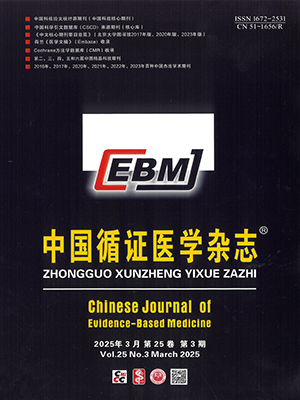Objective To assess the efficacy and safety of Shenmai injection for children with viral myocarditis.
Methods All randomized and quasi-randomized controlled trials (RCTs and quasi-RCTs) of Shenmai injection for children with viral myocarditis were searched from CBM (1981 to November 2009), CNKI (1980 to November 2009) and VIP (1989 to November 2009), The Cochrane Library (Issue 1,2010), PubMed (1966 to 2009), EMbase (1966 to 2009). Cochrane systematic reviews Handbook 5.0.1 was taken as a reference to quality evaluation of the included studies, and the Cochrane Collaboration’s RevMan 5.0 software was used for data analyses.
Results A total of 15 RCTs were included. The quality of the included trials was low. The result of meta-analyses showed that: (1) The effective rate (RR 1.16, 95%CI 1.07 to 1.25) and the ECG improvement rate (RR 1.55, 95%CI 1.25 to 1.93) in Shenmai injection group were better than those in the control group. CK and CK-MB in Shenmai injection were lower than those in the control group, but the AST level was similar in the two groups. (2) The effective rate (RR 1.12, 95%CI 1.01 to 1.25) and the ECG improvement rate (RR 1.35, 95%CI 1.07 to 1.70) in Shenmai injection group were better than those in the western medicine plus routine therapy (RT) group. CK, AST and LDH in Shenmai injection group were lower than those in the western medicine plus RT group, but CK-MB was similar in the two groups. (3) The effective rate (RR 1.26, 95%CI 1.12 to 1.42) in Shenmai injection plus RT and western medicine group was better than that in RT and western medicine group. CK and LDH-1 in Shenmai injection plus RT and western medicine group were lower than those in RT and western medicine group. Adverse reactions of Shenmai injection in 4 studies included mild rash, rubicundity and chest distress. No severe adverse reactions were reported.
Conclusion The evidence currently available shows that Shenmai injection may have some effect on children with viral myocarditis, including improving the effective rate, reducing myocardial enzymes and improving the ECG improvement rate. However, because of the low methodological quality of the included trials, this conclusion needs to be interpreted cautionsly, and more well-designed, high-quality RCTs need to be performed.
Citation: ZHANG Li,WANG Baohe,HU Jing,SHANG Hongcai. Shenmai Injection for Children with Viral Myocarditis: A Systematic Review. Chinese Journal of Evidence-Based Medicine, 2010, 10(6): 700-706. doi: 10.7507/1672-2531.20100479 Copy
Copyright © the editorial department of Chinese Journal of Evidence-Based Medicine of West China Medical Publisher. All rights reserved




